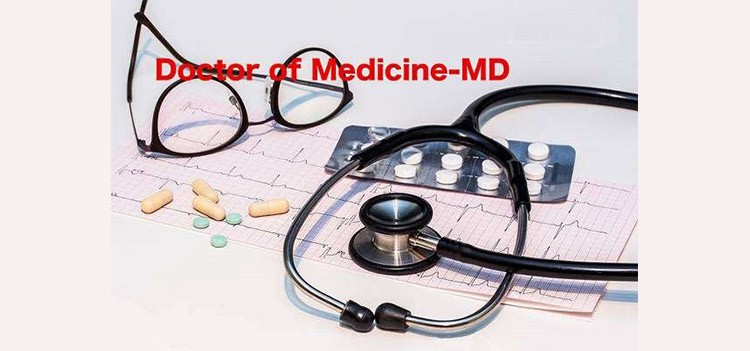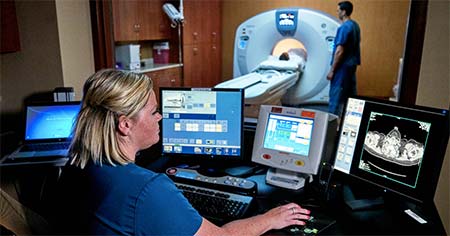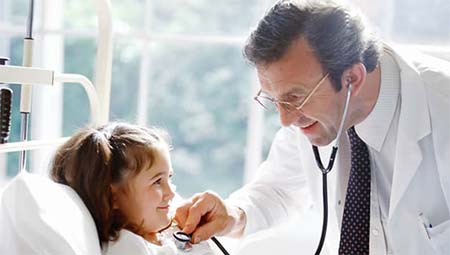What do you understand about Doctor of Medicine (MD)?
Doctor of Medicine (MD) is a masters/postgraduate degree that can be done by the students after completing their MBBS course. The MBBS students seeking MD seats are required to qualify NEET-PG exam in order to get MD seats. The students can choose their desired specialisations in their MD studies. The MD specialisations include general medicine, paediatrics, biochemistry, anaesthesiology, radiology, pathology, psychiatry, etc. MD degree is typically completed in 2-years and an MD degree represents a higher post graduate degree for speciality training.
The MD course teaches and prepares future doctors in their chosen specialisations. In the MD course they study in-depth knowledge about prevention, diagnosis and treatment of various diseases. The MD students will become certified doctors and also become experts to study and classify various medicines and carry out various experiments and observations in the laboratories. The course is an amalgamation of theoretical knowledge and practical exposure where the students will be studying by practice each day.
Specialisations available in MD course
The MD course has different specialisations according to the interests of MBBS students. The students can choose their desired specialisations according to their interests and can become specialists in their chosen area of specialisation. Almost all the specialisations in MD are equally popular and important, the choice is completely dependent on the students.
Let’s try to explore some of the important specialisations available in MD courses.
MD Anaesthesiology
Anaesthesiology or anaesthesia is the medical speciality that is concerned about complete preoperative care of patients before, during and after the surgery. It is an interdisciplinary study of different subjects like anaesthesia, intensive care medicine, critical emergency medicine and pain medicine. A physician specialised in the field of anaesthesia medicine is referred as anaesthesiologist or anaesthetist. As an anaesthetist one is responsible to provide treatment to a wide range of conditions using appropriate form of anaesthetic agents that includes: General Anaesthesia, Regional Anaesthesia or Local Anaesthesia. Patients of all ages which includes babies, pregnant women, the elderly and those undergoing operations.
MD Biochemistry
The MD Biochemistry doctors are basically considered as Biochemists and they will be studying the application of chemistry to study the biological processes at molecular and cellular level. The course includes training in the basic instrumentation and procedures pertaining to biochemistry that are required to be practiced in the community and at all levels of health care system. The MD Biochemistry doctors will be learning about efficient usage of appropriate learning resources and critically analyse the relevant theories published. The Biochemists learn to demonstrate research methodology and epidemiology practice the speciality of biochemistry in keeping with the professional ethics. They are required to analyse the specimen samples of the patients and try to find out their health condition and report the same to the doctors.
MD Pathology
Pathology is the branch of medical science that deals with the study of the essential nature of diseases. They are responsible to study particularly the structural and functional changes caused by the pathogens that cause diseases. The MD Pathologists mainly involve themselves in laboratory examination of molecules, cells, tissues and organs and its interpretation. The pathologists have a great opportunity to work in a variety of areas like clinical and laboratory work in hospitals and diagnostic centres. They mainly deal with the examination of the pathogens that are causing diseases and diseases in humans. They are responsible to identify the disease-causing pathogen and prescribe the right medicine or further refer the patients to the specialists if required.
MD General Medicine
MD General medicine is a specialisation that covers treatment and management of a wide range of long-term illness and short-term illnesses. The short term illness may include fever, cough, cold, allergies, etc, while long-term illness may include diabetes, blood pressure, hypertension and respiratory problems. General Medicine also deals with post-hospitalist medicine by providing specialised care to patients in post-acute care facilities and suffering from long-term or short-term illness. The General Medicine Practitioners typically deal with diagnosis of non-surgical treatment of the diseases of different internal organs of the human body. Doctors working in general medicine have specific expertise in diagnosis, reasoning, managing, uncertainty, dealing with comorbidities and recognising when speciality opinion or care is required.
MD Psychiatry
The MD Psychiatry students after the completion of their MD course are termed as Psychiatrists. The mental illness is extremely common and far more prevalent than most people realise in recent years. The disorders go unnoticed and the patients may end up in disaster. Unfortunately, the change in lifestyle of people has increased the stress levels and many are going to depression and also other mental health problems. So, the demand for psychiatrists has been increasing day by day. The psychiatrists are medically qualified doctors who contribute to the management and treatment of adults with mental health problems.
MD Radiology
Radiology is a consultant-led speciality and radiologists are responsible for reporting most imaging procedures and performing most interventional procedures. The MBBS students who join for MD Radiologists are known as Radiologists. The radiologists are doctors who use images to diagnose, treat and manage medical conditions and diseases. The radiologists work with the team of radiographers in hospitals and nursing homes.
Radiologists use various imaging techniques such as:
- X-Ray
- Ultrasound
- Computer Tomography (CT)
- Magnetic Resonance Imaging (MRI)
- Fluoroscopy
- Nuclear Medical Resonance (NMR)
MD Paediatrics
The main role of a MD Paediatric doctor is to help keep the children healthy by regularly checking their growth and development. They help prevent illness by giving vaccinations and general health advice. As a Paediatrician one works as a primary care physician to provide treatment for the growing children. They also diagnose and treat a wide range of general health conditions, give vaccinations and offer appropriate health advice to young children and their parents or caregivers. The Paediatricians are doctors who manage medical conditions affecting infants, children and young people.
Conclusion
The above-mentioned specialisations are some of the very important and popular ones that are largely chosen by MD aspirants. There are nearly 20 specialisations available in MD course. The MBBS students can choose their desired specialisations according to their interests. The MD doctors are some of the most highly paid individuals in the healthcare industry. They can earn good money by setting up private practice along with regular hospital work. The doctors with MD specialisations are considered as experts in the medical field and enjoy good respect from the society.





